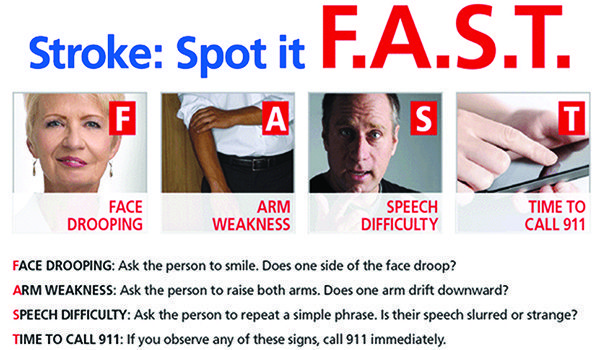By Randall Kenneth Jones


We teach children many valuable lessons intended to positively shape their behavior in the years that lie ahead.
For example, most children are taught to “be observant,” “listen closely,” “pay attention” and “act responsibly.” Kids are also advised of the important role that “respect” plays in positive relationships. Those in my childhood inner circle in Mid-Missouri were taught the importance of The Golden Rule: Do unto others as you would have them do unto you.
There’s a reason that parents, grandparents and educators place such emphasis on these key social and life skills: their ongoing use results in better-behaved children and (hopefully) socially conscious adults. After all, where would we be without observant people living among us? For one, “Watergate” would refer only to a hotel and not a historic event.
Physicians Regional Healthcare Systems’ Market CEO Scott Lowe recently shared a story that illustrates the importance of applying our childhood education to our behavior in the adult world.
Not long ago Scott heard from a friend he referred to as “Mark.” Though Mark is someone Scott described to me as a “talker,” as you will see, Mark is a “listener” as well. Mark told Scott a story about a business conversation he had with a woman who represented “a nationally recognized brand.” Out of respect for her privacy, Mark withheld her identity.
Their scheduled call occurred around 9:30 AM and Mark quickly realized something was wrong. A woman he normally described as “upbeat, gregarious and quick-witted” was unable to clearly express herself.
Mark went on to tell Scott about his colleague’s broken speech pattern, listless behavior and interminable pauses between responses. Evidently, even the simplest of questions were met with unintelligible answers. Though Mark was limited to hearing only her voice, he knew that one of the most important issues of F-A-S-T was on display: SPEECH.
F-A-S-T is an acronym used as a mnemonic to identify the likelihood of a stroke. The acronym stands for Facial drooping, Arm weakness, Speech difficulties and Time to call emergency services.
Though Mark had no way to see this woman’s face and could not casually introduce to topic of arm pain into the conversation, he intuitively knew TIME was of the essence.
According to Scott, Mark also had a moral and ethical dilemma. Knowing that this woman’s health may have been compromised, Mark knew he had to act; however, as he was limited in his knowledge of her life outside of this phone call, he didn’t know how to proceed appropriately. For example, what if she were just having a “bad day?” Would Mark’s colleague be offended if he called a member of her office staff to share his concerns?
As his mind searched for a solution, he kept his colleague on the phone hoping for signs of improvement. Finally, as Mark had determined this woman was alone, he knew he had to make a move regardless of the consequences.
As Mark told Scott: “What if she dies because I am too afraid to potentially ruffle a feather or two?”
Mark excused himself from the call and promptly tracked down another colleague—the woman who had introduced the pair initially. Based on her knowledge of the “bigger picture,” the woman thanked Mark for his decision to act.
The upshot? Golden-Rule Mark placed this woman’s wellbeing above all else.
Like so many in Southwest Florida, I was raised to act responsibly when another human being’s life is at risk. Mark and I both understand that vast importance of F-A-S-T when it comes to recognizing stroke symptoms.
Physicians Regional –
Collier Blvd. and Physicians Regional – Pine Ridge are both designated Primary Stroke Centers by the Agency for Healthcare Administration. Additionally, Physicians Regional has earned the “Gold Plus – Get with the Guidelines/Stroke” from the American Heart and Stroke Associations. Their hospitals are dedicated to treating patients who suffer a stroke, as well as educating the public about stroke.
Each month, Physicians Regional conducts a free class entitled “What is a stroke, and how does it happen?” This class covers the causes and symptoms of a stroke, and instructs members of the community when to seek medical care for themselves or a loved one. You can register online at PhysiciansRegional.com, or call (239) 348-4180 to make a reservation.
According to Scott, Mark does not actually know the outcome of the story. As his association with this “patient” was strictly professional, he may never know. Even though his colleague was exhibiting a primary stroke symptom, she could have been having a reaction to a medication. Perhaps she was diabetic and needed insulin. Nonetheless, based solely on her dramatic change in behavior, Mark knew what had to be done—and he did it.
What do I think of Mark? He did unto another person as I hope someone would do unto me in a similar situation.
To all the Marks of the world, thank you.
Physicians Regional Medical Group
6101 Pine Ridge Rd., Naples
 Southwest Florida's Health and Wellness Magazine Health and Wellness Articles
Southwest Florida's Health and Wellness Magazine Health and Wellness Articles
